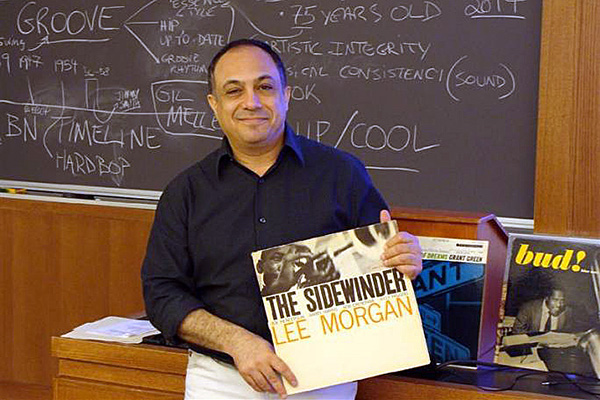
Ashley Khan is a journalist, music historian, producer, and adjunct professor at New York University’s Tisch School of the Arts. In addition to contributions to the New York Times, Rolling Stone, Down Beat, Jazz Times, and Mojo, Khan has authored Kind of Blue: The Making of the Miles Davis Masterpiece (2001), A Love Supreme: The Story of John Coltrane’s Signature Album (2002), and The House That Trane Built: The Story of Impulse Records (2006). He has also served as road manager for Henry Threadgill, Cassandra Wilson, Paul Simon, Peter Gabriel, Hugh Masekela, Ladysmith Black Mambazo, Britney Spears, and others. Khan has also worked as a deejay, video producer, music editor, and concert promoter.
In this exclusive recent conversation with iRock Jazz, Khan shares some of his insights on Davis and Coltrane. He also uses his studies on these pioneers as the foundation for a far-reaching discussion of the state of jazz today.
iRJ: Having done both books, one on Miles and one on Coltrane, how would you now define jazz, based off of those and what you know of the industry at large?
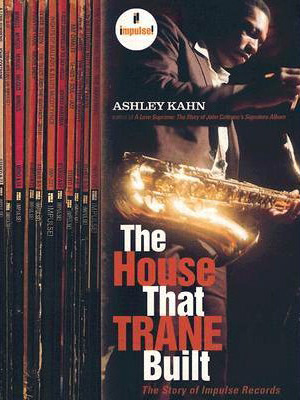 AK: That’s a big question. Jazz is one of those things that defines itself. If a performer, a composer, a bandleader, a record label, anyone wants to define themselves as jazz, usually it’s jazz, because it’s not something that people are running towards. It’s a special kind of music. Of course, it’s defined in a big part by the tradition and legacy that gave birth to it: very serious African-American roots, the blues, the role of improvisation. But I think, for me, the big three are the ideals that you could say are kind of the self-defining ideals of jazz, and that is a balance of tradition, innovation, and individual voice.
AK: That’s a big question. Jazz is one of those things that defines itself. If a performer, a composer, a bandleader, a record label, anyone wants to define themselves as jazz, usually it’s jazz, because it’s not something that people are running towards. It’s a special kind of music. Of course, it’s defined in a big part by the tradition and legacy that gave birth to it: very serious African-American roots, the blues, the role of improvisation. But I think, for me, the big three are the ideals that you could say are kind of the self-defining ideals of jazz, and that is a balance of tradition, innovation, and individual voice.
And if you think about other musical styles, the balance—especially tradition versus innovation—is different. When you think about music like hip-hop, there’s some amazing music that I grew up with that I just absolutely adored. But, except for Run-DMC, that’s not a style of music that cares too much about who was doing music in the Eighties, whereas classical music is all about tradition and very little about the innovation. So if you’re a 20th-century or 21st-century composer in classical music, good luck trying to go up against Mozart, Beethoven and Bach.
So that’s a very long answer to your short question, but I think that’s a way of defining jazz. When I teach it at NYU, I definitely push this idea of the ideals of jazz and how it helps define what the music is.
iRJ: In doing your research on John Coltrane, what were some of the most unique finds that you were surprised about?
AK: I wouldn’t say “surprised” so much as kind of “heartened” to realize that there really is a kind of cultish reverence for John Coltrane, and I think people would admit it themselves. His sound is so compelling that you can still hear the echoes and resonance of the Coltrane approach to saxophone today on any given night at any club. His story of the dedicated—I mean supremely dedicated—artistic individual, tied in with the spiritual aspect—a very deep, deep sense of universality: All of this adds up to a sort of messianic [chuckle] kind of cult figure.
To realize that he was a guy who had his feet on the ground, who was putting food on the table for his family, who was negotiating business deals, who realized the value of his name, that he was getting popular, that he could renegotiate a contract with a record company, all of a sudden he sounds like jazz cats that I know now and get to talk with all of the time. He was a regular individual who realized his value and was trying to do what was best. He was actually thinking about starting a studio in his home out in Dix Hills [N.Y.], and he actually began that process. He was beginning the process of launching his own record company and having his own record label: Coltrane Records. All the same kind of motivators, the stuff that’s happening today. So he was very much a visionary, yet going through the same paces that today’s jazz musicians are going through. That was a surprise, just getting to kind of respect and revere the guy as a three-dimensional human.
iRJ: With regard to Miles, how close was he related personality-wise and drive-wise to Coltrane, and how different were they?
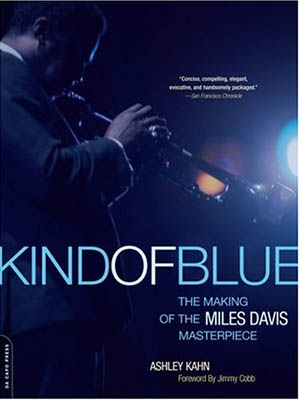 AK: Well, they were different people, different individuals who had a very different approach to how they did music and how they felt about their career. You just have to open up Miles’s book [Autobiography] to see the way he describes Coltrane. He says Coltrane was 100 percent music, that a woman could walk past him with no clothes on while he was practicing and he would not be distracted. And that’s pretty dead on. There was almost an OCD quality in how Coltrane was with music. And Miles was Mr. Super-Cool about it. Showing enthusiasm was kind of the opposite of the cool aesthetic, and even when Miles was doing fusion or rock or funk-influenced music he was still a very cool customer.
AK: Well, they were different people, different individuals who had a very different approach to how they did music and how they felt about their career. You just have to open up Miles’s book [Autobiography] to see the way he describes Coltrane. He says Coltrane was 100 percent music, that a woman could walk past him with no clothes on while he was practicing and he would not be distracted. And that’s pretty dead on. There was almost an OCD quality in how Coltrane was with music. And Miles was Mr. Super-Cool about it. Showing enthusiasm was kind of the opposite of the cool aesthetic, and even when Miles was doing fusion or rock or funk-influenced music he was still a very cool customer.
iRJ: Hip-hop guys have been able to monetize in a way in which jazz musicians have not. They’re able to succeed in business, they’re in movies. So what happened to the jazz musicians, because it all started with them?
AK: First of all, if you take the long view, the historical view, the hip-hoppers did not invent the idea of monetizing one’s ability to use music, especially popular music. It just happens that we live in a very hip-hop, hard-rocking era right now, and that’s the kind of music that’s getting the attention and getting the funding. But that’s always the case. Styles change, and where the money flows in the music world changes.
But think about the business ventures that African-American musicians have been able to create and monetize their own careers. You know, go back to the Seventies and think about Isaac Hayes. There was a time that he was looked upon as having created this incredible empire of money-making. Before that, Berry Gordy; before that, Ray Charles—Ray Charles owning his own masters—and James Brown. And then you look back further, in what we would call jazz, and you’ve got bandleaders like Lionel Hampton and Cab Calloway who are pretty much recording themselves and running their own businesses. The way that they ran their bands, there was a lot of monetizing going on way back then too. And there was a lot of economic independence and control that was being asserted.
So what we’re describing here is the number of zeros more so than the idea of why can’t jazz do this. If there was that much money coming in, we’d be praising jazz guys the way we talk about Jay-Z. But, when you think about it, what I just described about Coltrane’s efforts at creating a sort of economic independence for himself, creating a nest egg for his family, et cetera, it’s the same motivation, the same issue of “what else can I do to change the system to make it work better for myself as an artist and the kind of economic support that I need to create my music?”
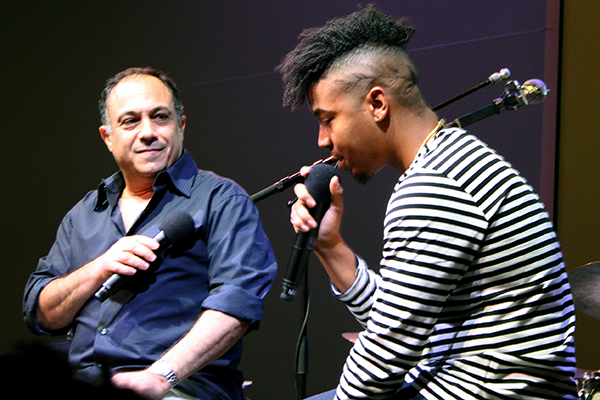 Ashley Kahn interviews Christian Scott
Ashley Kahn interviews Christian Scott
iRJ: I talked with Robert Glasper some time ago, and he said that in making new music today he felt as though he was always competing with some past great. So when he makes new music, he’s always bumped off the top of the charts when they reissue another John Coltrane or Miles set, and this groove only happens in jazz . Do you think it’s fair that new musicians compositions compete with reissues from these past greats?
AK: Well, listen, if Robert Glasper says it’s there, it’s there. And if you open up Billboard and you believe the numbers that are in Billboard, and you see that Kind of Blue is still selling 2,000 physical units a week or whatever it does, then I can’t argue with that. And if you go to jazz festivals and you see that a Miles tribute draws a packed house whereas a new set of artists—Christian Scott, Ambrose Akinmusire, et cetera—is having trouble with the same venue just playing their own music, I would say, “Absolutely.”
But, like I said earlier, jazz is a music that is trying to work out a balance—and, at its best, it does work out that balance—between tradition and innovation. When an artist gets up there and suddenly pulls out a Duke Ellington ballad and there’s that spark of familiarity, there’s a sense of connection to the jazz history, to its legacy, that cannot be denied. And I think this is all part and parcel of the same kind of impetus within jazz to look back and celebrate the history. It’s like driving forward while keeping at least one eye on the rearview mirror. It’s something that you’ve got to work out.
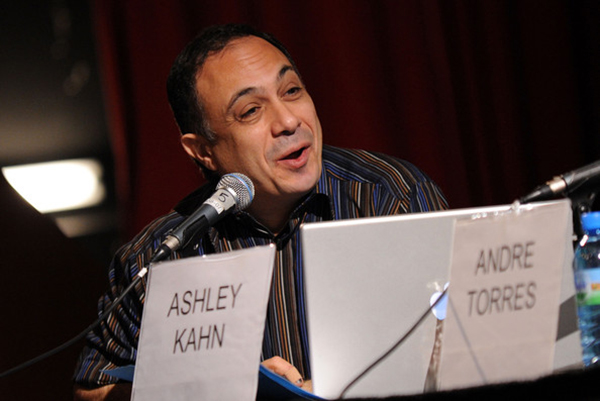
Is it there? Absolutely! But do we want innovation? Do we want to be celebrating new heroes as well? Look at someone like Esperanza Spalding—or Robert Glasper, getting the Grammy for R&B album of the year. There is this idea that there is a new generation all the time, taking it forward. Does it create competition for new artists, where they’re not only competing with their colleagues and other people who are out there but also the sense of history? Absolutely! But it ain’t like classical music. There’s a lot more room for new in jazz than in some other musical styles.
iRJ: A lot of people refer to jazz as American classical music. Do you think this title has hurt or helped jazz?
AK: That’s a good question. You can’t help but reach out for a parallel with jazz to try to explain it to the rest of the world. And that’s why I think that term—America’s classical music—is used, because the rest of the world understands the sort of status or idea of unquestioned entrenchment, for lack of a better term, that classical music enjoys: government funding, private funding, and societal comfort with it. It starts with “Mommy and Daddy are going to the opera.” That’s the highest cultural thing that people can do. It’s very middle class, in a way.
So does jazz want to be compared with that? I don’t know, to be quite honest. There are good things and bad things about it. But I think, once again, this push for respect, for acceptance, for jazz wherever it goes—what it’s been and the incredible legacy and historical weight that it’s carrying—should raise it up to that level of awareness and appreciation. But do we in the jazz scene want to be compared with that sense of almost static movement within the classical world where, as I mentioned before, no modern artist is going to be compared to Mozart or Beethoven? I’m not sure. That’s where I think the comparison kind of falls short.
iRJ: Jazz today isn’t as popular with the younger generation. Do you that’s because the music isn’t necessarily danceable?
AK: Alice Coltrane once told me that when you lose a regular beat or a regular pulse in the rhythm, which is usually associated with dancing, and get into irregular rhythms, which is what John Coltrane was doing, that’s when the audience starts leaving. It really becomes more like art music.
I would say that dance is a very important social function of music. If you’re creating the music that everyone is dancing to, you’re creating the music that men and women are meeting each other to, that is sort of the soundtrack to important social interaction—Friday night get-togethers, Saturday night parties—there’s no higher reach than being able to create music that hits that function. So if you can create jazz, like Jimmy Smith did in the Fifties, where suddenly you’re creating music that is on juke boxes, that people are drinking to and partying to, it starts to reach at a whole other level.
Should jazz do that? Jazz should be whatever it wants to be, whatever the jazz player, composer, or bandleader wants it to be. And if they want to include that kind of function in it, I’m not gonna be looking down on that. So if Lou Donaldson still wants to get up there and hit “Alligator Boogaloo,” or Robert Glasper’s gonna bring Chris Dave into the band and they’re gonna use hip-hop rhythms and hip-hop beats as part of their music, I say, “God bless.” I think that’s great. Jazz has always been connected to all sorts of other music, whether or not people like that.
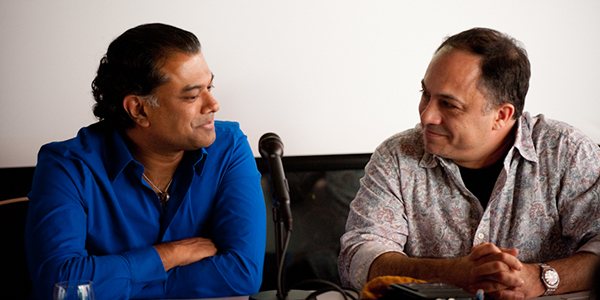 Rudresh Mahanthappa and Ashley Kahn
Rudresh Mahanthappa and Ashley Kahn
iRJ: Where do you see the music industry going today?
AK: [Chuckles] If I knew the answer to that question, I’d probably be sitting behind some desk in some office somewhere getting paid a big weekly salary. But I don’t know where the music industry’s going. There will always be a music business, but even more than that there will always be music. The need to create music—the need to play, compose, lead bands, perform—is timeless. It’ll always be there. But how all of that gets monetized, to borrow your term—it’ll figure itself out. The music industry was a very small part of the general economic landscape up until the Seventies, and then it just exploded and it kept on exploding. And to this day it’s sort of interwoven with the entertainment industry in such a big way that you have someone like Jay-Z owning [a share of] the Barclays Center. [Ed. note: Jay-Z sold his share in September 2013 for $1.5 million.]
For me, the question is where is creative music going? Will there always be space and support and an environment that encourages creative music? And jazz is a huge part of that. The idea of getting up there with instrumental music and improvising: as I said before, these are sort of like the defining elements of jazz, and will there be a place for that? And I think in the future there will be. One of the effects of the Internet and of digital music—downloads and sharing of music—which has taken away so much economic clout from the industry is also creating the freedom for individuals to create their own websites, to create their own labels, to create their own situations.
The thing is that jazz has always been a live music, a form of music that relies on live performance, on the meeting of the performer and the audience. Will there always be jazz clubs? Will there always be clubs dedicated to supporting this kind of music? I damn well hope so. I’m not totally convinced, but at least here in New York City we have the advantage of many clubs where, any night of the week, you still have choices of where you can go to hear some great jazz. And that, I hope, will always be there.
by Grant Mabie





